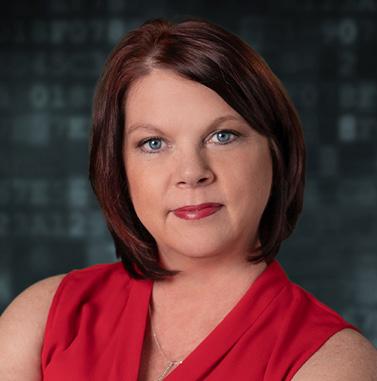
4 minute read
From the Editor: We're Still Doomscrolling, and It's Taking It's Toll
Shira Firestone, Editor CJN
We’re a month into 2022, and it seems the bad news just keeps coming. New variants, new floods, new horrific acts of violence. A friend said the other day, “I’ve lost hope in humanity. Our country is a mess, and the world has become such an awful place to live in.” And I confess, a cursory scroll of my news feed tempts me to agree with her. I also admit that I scroll far more often than I used to.
But is it true? Is the world really the scary, ugly place my
phone shows me each morning (and all day for those of us habitual scrollers)? I don’t think it is. In no way do I want to minimize the seriousness of the concerns of the state of the world today.
I am, though, confident that the select offerings on my feed do not reflect the greater reality.
I can trace my uncomfortable attachment to my phone back to early 2020 when I, like the rest of the world, was incessantly following news of an unfolding pandemic. That was when a great many of us became hooked on “doomscrolling,” described by Rebecca Jennings, a contributing writer to Vox as “the masochistic practice of compulsively scouring the internet in search of evermore terrible information.” Unfortunately, thanks to complicated social media algorithms, that particular behavior of seeking out stories that detail the very worst the world has to offer is what ensures that more terrible news will be served to us on a platter.
Not too long ago in my scrolling haze, I noticed only two types of stories were appearing in my news feed — COVID and true crime. True crime? Apparently
last year I’d taken a bit too much interest in a couple of high-profile cases. Thanks to Facebook’s ever-changing algorithms, those stories slowly — insidiously — crept to the top of my feed while I hardly noticed, until they were the only stories offered. So I clicked — and ensured they would be all I would ever see.
Facebook’s model is to determine what you will engage with to keep you scrolling. The more you scroll, the more ads you see. In 2017, Facebook added additional options for reacting to posts beyond the traditional “like.” Emojis that conveyed emotions such as “wow,” “love,” “ha ha,” “sad,” and “angry” became part of the algorithm. Instead of being weighted equally though, an “angry” reaction was weighted as five times more valuable than other reactions! Facebook has concluded that content that generates the strongest reaction is far more likely to keep us scrolling and “engaged” longer. Consequently, we receive a steadily curated feed of more highly emotional, divisive content.
In their 2021 article in the Washington Post, Jeremy Merill
and Will Oremus write, “[Facebook’s] data scientists confirmed in 2019 that posts that sparked angry reaction emoji were disproportionately likely to include misinformation, toxicity and low-quality news. That means Facebook for three years systematically amped up some of the worst of its platform, making it more prominent in users’ feeds and spreading it to a much wider audience.”
This development’s negative influence on our society as a whole is undeniable. But on a more personal level, it is part of what leads us to conclude, just as my friend has, that the world is a terrible place. Of a constant exposure to negative news Carolyn Gregoire says, “It can lead to a pessimism and world-weariness that leads us to perceive the state of the world in an overly negative light — leading us to ignore and overshadow the many things that are working. (What Constant Exposure Is Doing to our Mental Health, Carolyn Gregoire)
In Jewish Family Services’ article on page nine, “Technology and Mental Health,” Executive Director Howard Olshansky out-
lines some concerns about the relationship between both physical and mental health and the overuse of technology.
In our February issue (which can be easily accessed in the archives at www.charlottejewishnews.org), I wrote about doomscrolling and quoted Sam Harris, who says, “There is a war being fought for our attention, and most of us are losing.” I believe with awareness and conscious intent, we can turn that tide. It begins by understanding the ways in which the news is selecting us, not the other way around, and engaging more consciously with the technology we are unlikely to give up. If you’re in search of good news, I encourage you to follow The Charlotte Jewish News on Facebook. You can look forward to starting your week with a good news story every Monday morning.
I still believe there is more good than bad in the world; we just have to know where — and how — to look for it.










